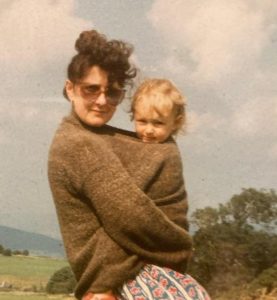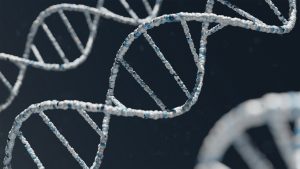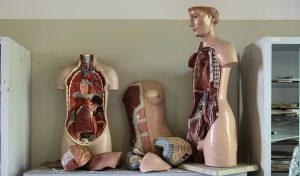If all we have to offer are platitudes and cures, we will be stuck forever trying to eat the elephant in the room, a possibility in theory, but rarely in practice. If we can understand and engage with our patient’s point of
It used to be just in the context of type 1 diabetes, but the little white circles on people’s upper arms seem to be more ubiquitous, and it’s clear that the use of continuous glucose monitoring (CGM) is shifting from a medical
With the weight loss effects of semaglutide and other GLP-1 agonists so widely reported in the press and social media, it’s not just people with obesity and weight-related comorbidities that are asking about it. But ask they will, so what we can
"Confidence in the future of NHS primary care is thin right now. My resilience suddenly really matters. Are the two linked?" asks Saul Miller.
I first read his 2014 book Superintelligence: Paths, Dangers, Strategies five years ago, which convinced me that the risks which would be posed to humanity by a highly capable AI system (a ‘superintelligence’) ought to be taken very seriously before such a
GPs feel they are increasingly managing increasingly risky mental health patients, with rising frustration that their referrals are being rejected. Just as in general practice, CMHT teams are facing their own challenges in not having the workforce or capacity to meet those
‘Wherefore’, meaning ‘For what reason’, is one of the most fundamental questions we must ask in medicine. Tasneem Khan applies this idea to trauma-informed care.
Is there 'One Big Thing' that GPs do? Or does it emerge out of all the things that GPs do?
Nurse Bernadette Millwood, in the final year of her career, is interviewed by her daughter Dr Sinead Millwood, a newly qualified GP in the first year of hers. What can we learn about primary healthcare going forward into the future?
"Healthcare professionals are being increasingly asked to consider referral for genetic testing. While for the majority with an abnormal finding, curative treatment is not currently possible, having a disease with a name can provide relief and allow for more targeted supportive measures.
Is general practice the platypus of medical specialities?
Medicine: Right Idea, wrong science? Should critical realism be the new science of medical practice?
Alistair Appleby introduces critical realism as a philosophical foundation for medical science and primary healthcare
Do the ARRS roles lead to GP clinics filled with increasing complexity, and what are the other contributory factors? Nada Khan looks at the evidence.
"We wish to share the story of an innovative digital intervention that has helped to overcome existing divisions by creating a vibrant interdisciplinary network of learning and health activism. We describe how a few family physicians created a virtual community on WhatsApp
Pattern recognition by AI is already overtaking humans in many diagnostic fields such as radiology and cytology. Large language models are doing the same in communication, dialogue and processing human-generated text. Here we present their potential within primary care using four broad
Richard Armitage visits the wild frontier of LLM-powered commercial health apps and reflects on three examples: ElliQ, MMGuardian and WHOOP Coach
Throughout medical history, there has been a tension between systems that locate health within the patient and those that have it outside. Ben Hoban finds the determinants of health and illness by looking in and by looking out.
Nada Khan argues that it’s worth just reflecting back on what was on offer and why, whether this retention scheme was working, and what future plans NHS England may have to keep GPs in practice.
This issue’s life and times articles describe the failure of society and policymakers to value general practice. To value is to understand and appreciate both the beauty and appropriate uses of a thing. It also has a sense of quantitate weighing -
Drawing inspiration from Brazil, Cornelia Junghans, Matthew Harris, and Azeem Majeed suggest building a community infrastructure of trained and paid Community Health and Wellbeing Workers (CHWWs) who work with GPs, community services and local authority.
Ahmed Rashid muses about surgical site infection, opioid dependence, racial diversity, and 'Meals on Wheels'
Richard Armitage predicts how AI can transform clinician-patient consultation.
Employing lower skilled healthcarers at the ‘diagnostic front door’ of general practice will not save money, resources, professional time or efficiently – it produces the opposite. David Zigmond invites debate.
Even as a GP trainee in the mid-90s, I genuinely don’t recall learning about the concept or practice of clinical reasoning. It’s not as if we weren’t guided on data synthesis or critical thinking, or the importance of these aspects of the
Hannah Milton reflects on domestic abuse statistics in relation to men and women
At the most recent WONCA global conference in October 2023, the WONCA Women’s Working Party on Women and Family Medicine (WWPWFM) met with young doctors movements from all world regions, to discuss common themes and possible ways to work together. Amanda Howe
We know (from that research) that higher continuity is associated with lower mortality rates, reduced healthcare costs, higher patient satisfaction, safer prescribing and reduced hospitalisations. But what about patient safety incidents? Nada Khan investigates
Considering a dual role as a GP-academic? Daniel Baumgardt has some reflections to share!
The good news is that there are at least ten evidence-based ways to enhance empathy. These take little time and can pay back the moments invested (sometimes with compound interest).
The Lancet declares that “generative AI is not an author”, and dictates that “these tools should only be used to improve language and readability”. But are these statements – the first a factual claim, the second a normative assertion – entirely true?
In a world of immediacy and impermanence, my two cards and lonely box of chocolates earn a particular significance. They emphasise the humanity that is still possible in General Practice despite the need to count, measure, and capture everything – a connection
The introduction of new roles working alongside GPs should improve access, quality and contain costs in health care, but these new roles cannot fill the skill gaps left by the shortage of GPs. Terry Kemple looks at the evidence.
General Practice has been diluted by demand and lost all flavour. Young doctors have no taste for it and, with the NHS in free-fall, we need to now undertake some fundamental changes. John Havard and colleagues offer a gin and tonic themed
The ARRS is a big step change for how practice teams work to manage their patients and appointments, and it’s naïve to think that implementation of such a wide-ranging scheme wouldn’t have significant impacts and unanticipated consequences for the wider workforce.
...requests for race-based concordance is a complicated area of medicine, and it is one that is not easily dealt with through formulised policies. Instead, well-reasoned judgements by the care team through a deliberative process, that begin with ethical frameworks, might provide a
nappropriate transfer of workload can go both ways, and it can feel highly frustrating for GPs and hospital specialists alike. But as patient care becomes increasingly fragmented, thinking locally about how to improve collaborative care might help build back those relationships across
The RCGP is again also calling for a merger of the general practice and specialist registers. What’s the background to this, and what might it mean to rebrand GPs as consultants?
With the combination of a global pandemic, cost-of-living crisis and the Government’s austerity measures, over the last few years rates of DA are thought to have increased significantly. Paul McNamara and Anna de Natale reflect on how general practice should respond.
Domestic abuse remains a largely concealed phenomenon. It affects healthcare professionals (HCPs), especially women, nurses, and those working in low- and middle-income countries, at an alarmingly disproportionate rate. Vasumathy Sivarajasingam asks us be mindful of its causes and effects.
Esoteric morality refers to the idea that it might sometimes be right to do or recommend privately actions that it would be wrong to advocate openly, if doing so secretly would have better overall consequences. Richard Armitage asks what this might mean
In this provocative essay, Richard Armitage explores what a respect for autonomy requires of GPs, its manifestation as the patient’s ‘right’ not to know, and the problems this raises for contemporary general practice.







































